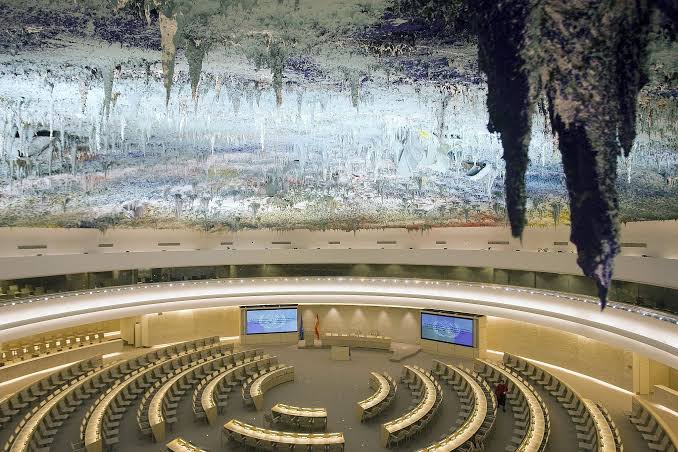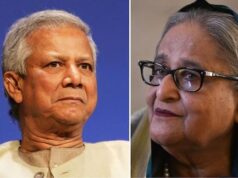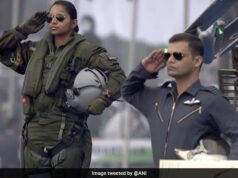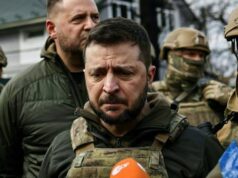UN Human Rights Council is a West-controlled body

The vote once again demonstrated that, generally speaking, the UN HRC has already fallen under the control of Western nations, Gennady Gatilov said.
The adoption of an EU-initiated anti-Russian resolution demonstrates that the UN Human Rights Council (HRC) has become an instrument in the hands of Western countries, a senior Russian diplomat said on Friday.
“The vote once again demonstrated that, generally speaking, the UN HRC has already fallen under the control of Western nations, it is serving their political agenda and its work is far from any true protection of human rights,” said Gennady Gatilov, permanent representative of the Russian Federation to the UN office in Geneva.
“We have always said that country-related topics are politicized ones. They are used as an instrument for pressure on governments that are out of [West’s] favor, and we do not support that,” he said. “Regretfully, the Council has been turned into a body manipulated by the Western nations, including the United States and its closest allies.”
Anti-Russian resolution
The anti-Russian resolution calls for the appointment of a special rapporteur on the human rights situation in the Russian Federation to the UNHRC for a year. He will be entrusted with gathering, studying and evaluating relevant information, and submitting a report to the 54th session of the Human Rights Council and the 78th session of the UN General Assembly.
The document, authored by EU member states, was passed by a count of 17 out of 47 votes, which is a clear minority. Among the nations that supported it are the US, the UK, the EU, the Republic of Korea, Japan, Argentina, and Ukraine.
Six countries: Bolivia, China, Cuba, Eritrea, Kazakhstan, and Venezuela voted against the resolution. Twenty-four delegations abstained, including Armenia, Brazil, India, Indonesia, Qatar, Mexico, Pakistan, Senegal, Sudan and Uzbekistan.
According to Gatilov, “this outcome was expected, because Western nations always have a numerical majority in the Council: first of all, they can count on votes from NATO and EU members, and, secondly, on a group of nations that follows in their footsteps.”
At the same time, Gatolov said that practically two thirds of the council were not ready to support the decision to appoint a special rapporteur on human rights in Russia, and this was “quite illustrative.”
“Some ambassadors approached me after the vote and said frankly that the co-authors of this document did not expect such a weak result,” he said. “Evidently, not all countries are ready to follow <…> the Western course, masterminded by the United States and its closest allies in Europe.”
Politization of human rights
Russia views this resolution as “having nothing in common with real protection of human rights,” Gatilov said.
“It was a purely political decision, whose main goal is to create the mechanism of a special rapporteur in order to ensure that the ‘Russian issue’ remains high on the UN HRC agenda for quite a while, and to have an opportunity to raise this issue in the council through the lens of criticism and indiscriminate mudslinging of all events that are taking place in Russia,” he continued.
“Evidently, they [Western nations] will use the information that will be fully based on reports of some non-governmental organizations, financed by the West and living at its expense. They will certainly provide the information that is expected from them,” the Russian diplomat added.
Speaking about the candidacy of the special rapporteur, who is yet to be appointed, the Russian diplomat said he is expected to be “clearly pro-Western and pro-Ukrainian, and so nothing good will come out of this mechanism.”
“We’ll see how the events will unfold, but it is totally clear that no constructive cooperation <…> should be expected on the basis of this mechanism,” Gatilov said.
Russia’s cooperation with HRC
However, the latest developments do not mean that Russia will end its contacts or work with the Council, Gatilov said.
“We have the observer status, and will continue to defend our stance together with like-minded delegates,” the diplomat went on. “Even in this challenging environment, we will try to act in line with the principles of the UN Charter, [which calls for] non-interference into domestic affairs of all nations, regardless of the pretext.”
“We will use all opportunities that are still available to us,” Gatilov added




